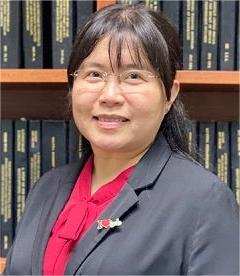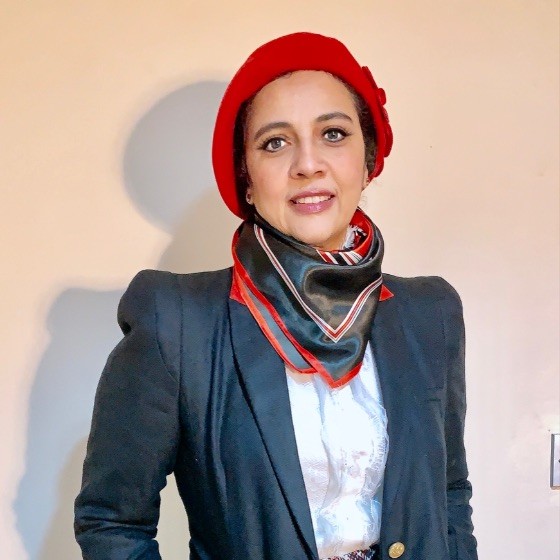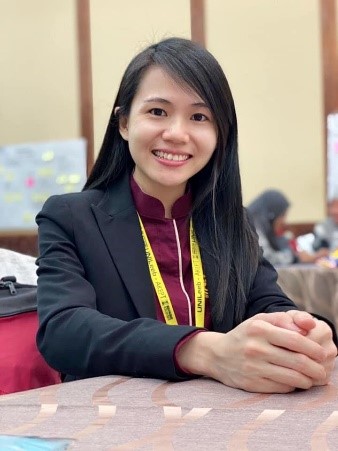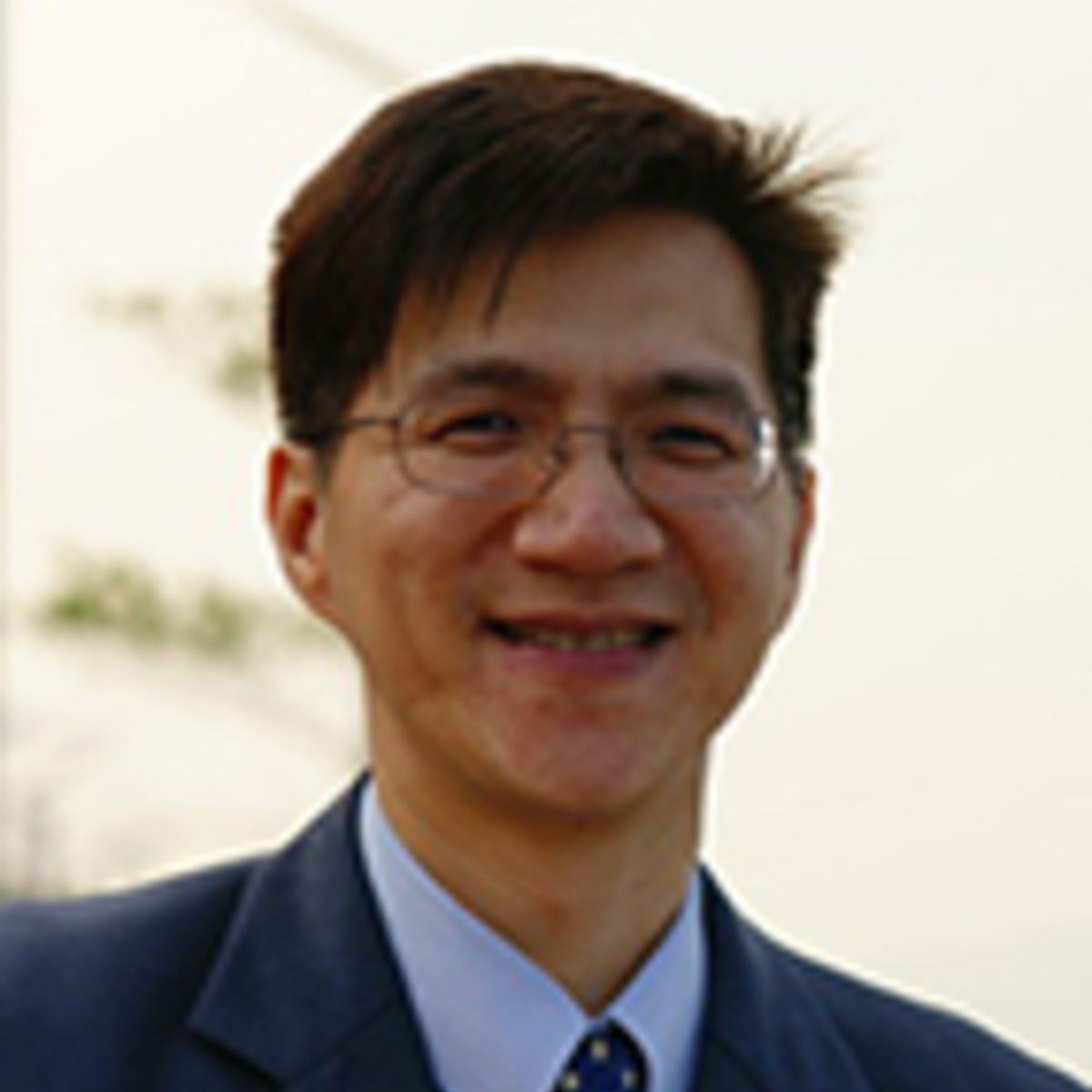Invited Speakers

Assoc. Prof. Teoh Ai Ping, Universiti Sains Malaysia, Malaysia
Ts. Dr. Teoh Ai Ping is the Doctor of Business Administration Programme Manager and an Associate Professor in the Graduate School of Business, Universiti Sains Malaysia. Dr. Teoh carries the qualifications of Doctor of Business Administration, Master of Science (Information Technology) and Bachelor of Accountancy (Hons.) and has a total of 22 years of industry and academic experience to date. Before embarking on a career in education, she worked in multinational corporations and consulting firms in Enterprise Resources Planning Systems and Enterprise Risk Management. She has published research articles, books, open-distance learning courses and conference proceedings. She has contributed as a visiting lecturer and invited speaker to universities in China, Taiwan, Hong Kong, South Korea and Indonesia. She is a Certified Risk and Compliance Management Professional and a Professional Technologist (Cyber Security Technologies). She possesses a Certification in Training and conducts consultancy and training for corporate clients. Her areas of specialization include Enterprise Systems, Digital Leadership, Cyber Security, Online Education and Enterprise Risk Management. She is a member of professional bodies such as Institute of Electrical and Electronics Engineers, Association for Computing Machinery, Malaysian Institute of Accountants, Malaysian Board of Technologists, and Institute of Internal Auditors Malaysia.
Title: Digital Leadership in Higher Education Institutions: The Roles
of Digital Citizenship and Innovation
Abstract: In today's digital age, higher education institutions are
challenged with technological developments that demand a fundamental
change in leadership strategies. The swift integration of technology
into pillars of academia (such as teaching and learning, research, and
administration) requires leaders who can navigate this landscape
competently. Digital leadership goes beyond technical expertise in
crafting a digital culture that fosters innovation and agility in
responding to the changing needs of students, faculty, the industry and
community at large. Grounded by an integrated view of leadership and
innovation theories while addressing gaps in the current literature,
this study aims to examine key determinants of digital leadership in the
context of education organizations. Empirical data obtained from
questionnaires survey was analyzed using SmartPLS 4 to test the
hypotheses. Results indicate that digital citizenship and innovation
have positive significant impact on digital leadership in Malaysian
higher education institutions. Findings from this study contributes to
the body of knowledge in the field of management innovation.
Practically, this study highlighted the crucial roles of digital
citizenship and innovation in developing digital leadership that drives
education institutions effectually through the digital era.

Lecturer Dr. Nashwa Ismail, Liverpool University, UK
Dr. Ismail has MSc and a PhD in Digital Education from the University of Southampton, and she is a Fellow (FHEA) in Advance HE. Her current role is as a lecturer in the Centre for Professional Development (CEDS) at the University of Liverpool, where she serves as a digital advisor across the university. In research, she has taken on various roles in Technology-Enhanced Learning (TEL)-related projects abroad, mainly Continuing Professional Development (CPD) and Games-Based Learning (GBL). Research projects includ countries such as Indonesia, Kenya, Malaysia, the Middle East (Egypt, Saudi Arabia), Myanmar, Thailand, and the USA. In Kenya, she worked with Health Professionals (HPs) to utilize low-technology communication methods in rural areas. In Thailand, she was involved in the development of digital games to integrate technology into the sex education curriculum. Enterprise, she took part in developing and commercializing Child Witness Interview Simulation (CWIS) across police forces in the UK. Furthermore, she is a qualitative researcher and teaches qualitative research methods including Systematic Reviews and the phenomenological approaches and their applications using Qualitative Data Analysis Software (QDAS) such as NVivo and Atlas.ti. Additionally, she has a parallel technical curriculum as a Microsoft Certified Trainer (MCT), Microsoft Certified Educator (MCE), and is a qualified Training Assessor in Assessment and Quality Assurance (TAQA).
Title: Transformative Teaching: Navigating New Norms After COVID-19
Abstract: The COVID-19 pandemic has transformed university teachers' job descriptions bynecessitating proficiency in online teaching, technology integration, and adaptability to hybrid learning models.Teachers perceive this transformation as both a challenge and an opportunity, highlighting the need for ongoing professional development and the recognition of the value of blended learning approaches. This study investigates the transformative journey of higher education in developing countries after the pandemic-driven transition from entirely face-to-face instruction to online learning, followed by a return to in-person and/or hybrid teaching. The primary focus of this empirical research centres on the roles, methodologies, and perspectives of educators within this context. The study results underscore the critical importance of adequately preparing educators for digital transformation, encompassing the development of essential skills and the provision of adequate training and support. Additionally, the study emphasizes the significance of robust infrastructure, encompassing both technological and human elements, in enabling effective online and in-person teaching and learning experiences.

Senior Lecturer Dr. Kew Si Na, Universiti Teknologi Malaysia, Malaysia
Dr. Kew Si Na is a senior lecturer at Language
Academy, Faculty of Social Sciences and Humanities,
Universiti Teknologi Malaysia, and doing her
postdoctoral program at NIE, Nanyang Technological
University, Singapore. She was the former
coordinator of the Ph.D. and Master Full Research
TESL Programme, FSSH, UTM. Her research interests
are educational technology, online teaching and
learning, learning analytics (LA), teaching English
as a second language (TESL), technology-enhanced
language learning (TELL), computer-assisted language
learning (CALL), etc. Besides that, she actively
involves in research and publication. She is joining
the Technology and Language Education (TLE) research
group. She is also currently one of the members of
the Young Scientist Network Academy of Sciences
Malaysia (YSN-ASM) and the Chair of the Science
Leadership Working Group, and a member of the Golden
Key Honor International Society. She is also an
editor of the Innovative Teaching and Learning
Journal and a reviewer for different journals. She
has published several articles in peer-reviewed
journals and received different awards in
exhibitions and competitions, the best presenters,
the chancellor award, and the indexed journal
publication award. She was also the National Winner
of Generation Impact Fellowship 2020. Her existing
research grants focus on learning analytics in
online learning.
Title: Learning Analytics and Student Engagement in Online Learning
Abstract: Learning analytics is useful in the education field, as it helps teachers gain a better understanding of the student’s learning progress and performance from data extraction and analysis. In particular, different stakeholders such as researchers, educators, and practitioners have increasingly concentrated on the issue of student engagement in online learning. Hence, in order to better understand learning analytics and student engagement in online learning, this study has reviewed relevant articles to shed light on the various types of student engagement, the objectives, and the effects of using learning analytics in online learning.

Lecturer Dr. Alex W. C. TSE, The University of Hong Kong, China
Dr. Alex W. C. TSE is currently a Lecturer at Teacher Education and Learning Leadership, Faculty of Education, The University of Hong Kong, mainly responsible for teaching, research and projects of STEM education, information technology in education, critical thinking, assessment for learning, inquiry-based learning assessment and small class teaching etc. He has been serving as a project member of PISA 2025 (Learning in the Digital World) and a member of programme committee for Master of Science in Information Technology in Education. Dr. Tse is a reviewer of manuscripts in various academic journals. He also has been acting as a programme committee chair/member/reviewer/invited speakers in more than 30 academic conferences in IT in Education or/and STEM education, serving as (permanent) Council Member (previously Secretary-General) of the Chinese Society for Inquiry Learning since 2009. He has published more than 40 items, including book chapters, journal papers, research reports and peer-reviewed conference papers.
Title: Teacher assessment literacy frameworks: Implications of teacher professional development and improving student learning
Abstract: Assessment literacy originally
refers to a basic understanding of educational
assessment and related skills to apply such
knowledge to various measures of student
achievement. Aligning with emergent needs of
education nowadays (e.g. assessment for learning
becomes more prevalent), the scope and importance of
assessment literacy for teachers have been evolving
recently. To equip teachers with up-to-date
knowledge and skills of assessment literacy,
policymakers of education, educators and school
leaders are steering various related teacher
professional development activities. In this invited
speech, various recently developed frameworks of
teacher assessment literacy are discussed,
especially in terms of their implications of teacher
professional development and improving student
learning, providing guiding principles for planning
and designing related teacher professional
development activities in order to fill the existing
knowledge gaps of teachers about assessment
literacy.
Copyright © 2024 13th International Conference on Education and Management Innovation (ICEMI 2024)